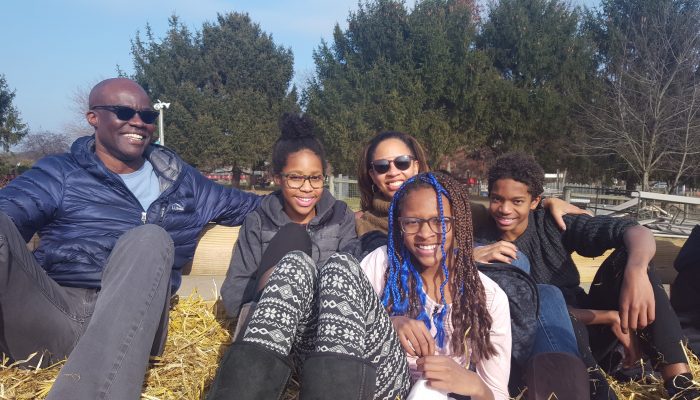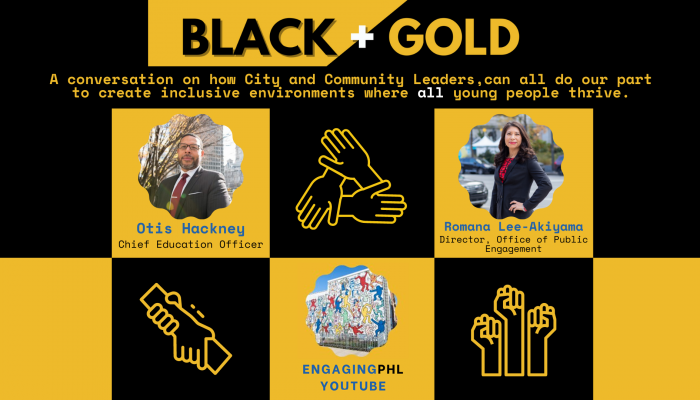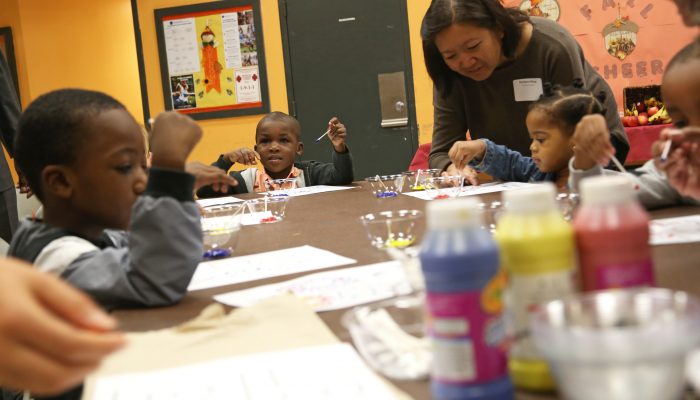Angela McIver is one of the first nine members appointed by Mayor Kenney to the Philadelphia Board of Education (BOE) in April 2018. Beginning in July 2018, the Board will oversee the School District of Philadelphia.
Angela is a former middle school math teacher with 25 years of experience working with students in urban settings. Her work with low-income students as Director of the Upward Bound Math/Science program prompted her to pursue a Ph.D. at the University of Pennsylvania, where she studied urban middle school students’ numerical reasoning.
Angela has lived in Philadelphia for over 25 years and lives with her husband and 3 children, who attend Penn Alexander School and Central High School.
What area of the city do you call home? Do you have any favorite family activities?
I live in West Philadelphia with my family. My husband and I moved there 18 years ago from Mount Airy.
Our family loves to explore Philadelphia. One of the best things about living in West Philly is the access to the bike trails. My kids and I particularly like to bike MLK Drive on Sundays and follow the trails up to Valley Green Inn.
I also read a lot. I often read the same books my children are reading. The most recent book that my daughter and I read together was “When Breath Becomes Air” by Paul Kalanithi.
Who were some of the people in your life who helped you form your values?
I come from a long tradition of political activism. In 1927 — after being turned away at the polls — my grandfather, Lawrence Aaron Nixon, sued the state of Texas for the right to vote in the Democratic primaries. His case went all the way to the Supreme Court with a ruling in his favor. Unfortunately, the state of Texas continued to disenfranchise Black voters. So, in 1932, my grandfather sued again and won a second Supreme Court decision. His legacy lives on in our family.
My parents instilled in me the obligation we have to fight for social justice and equality; one of my earliest memories is going door-to-door with my mother campaigning for George McGovern. I have spent my career focused on providing low-income and first generation students access to the schooling they deserve. It’s one way I can carry on my grandfather’s legacy.
Tell us about your educational journey. What inspired you to pursue the majors and degrees you now have?
I majored in history because I loved the subject and was a voracious reader, but I also earned a minor in economics, which spoke to me because it was so mathematical.
After moving to Philadelphia, I started teaching and found that I only wanted to teach math. Teaching math forced me to think through how I was taught, and I started to question how math gets taught, and how math is learned, in classrooms that serve students of color.
My dissertation research examined the math reasoning of students in a Philadelphia middle school. The research took the form of interviews in which students talked to me about how they were making sense of math. What I learned from these conversations with students fundamentally changed the way I think about teaching.
What are your personal goals for your service on the Board?
I want to shift the way we think about working with children from low-income backgrounds and instances of poverty. Children can do amazing things when schools maintain high expectations.
I’ve worked for many years with Philadelphia students in many different settings. I have discovered that when you raise the bar and truly believe in their abilities, they meet and exceed those expectations every time! So many children are not given the opportunity to reach their highest potential because of where they live and how they are being taught.
What do you love about living here now or what are some of your favorite things about Philadelphia?
There’s so much I love about Philadelphia. I love that it’s not a pretentious city. I fell in love with Philadelphia when I moved here almost 30 years ago. I’ve met so many wonderful and genuine people and have made incredible lasting friendships.
I also love that I live in a neighborhood where I don’t have to drive my car and our family can walk to do so many things. Our neighborhood is diverse, and I love that piece of it. But, I’m also concerned about the impact that gentrification has on the fabric of our communities. I think it’s necessary to consider the impact of development on affordability in neighborhoods all over the city and be deliberate in ensuring economic, racial, and ethnic diversity as the city grows.
Briefly, what vision do you have for our school system in 5 years?
When I worked with Upward Bound students in neighborhood high schools, one thing that was so problematic was that my students didn’t have access to high level and advanced placement courses. These types of courses should be available to all students, not just those who attend the magnet schools in the city.
If we can figure out how to get more students access to high-level courses in a way that is cost-effective, more people would keep their kids in their neighborhood schools. More parents would feel better about their educational options. My dream would be to see regional centers that serve multiple neighborhood schools where all students can have access to rigorous coursework.
It’s also important to recognize that we have to start early to prepare students for high level coursework. This has to start in kindergarten in a very deliberate and focused way.
What do you hope to learn or gain a better understanding of during the listening tour?
Understanding what it is that the public sees as our role as a board is really important. There has already been this concerted effort to get a publicly, locally-controlled board.
Part of our role now is to really listen to the public and form a board that represents the needs of the community. That way, Philadelphians can actually feel a sense of local control — and know there is someone who’s listening.




